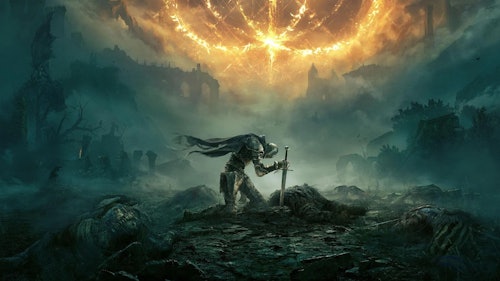
'Elden Ring' trumps 'God of War Ragnarok' in one critical way

2022 has been a busy year for video games, but as Game of The Year discussions draws closer, two obvious candidates stick out above the pack. Elden Ring and God of War Ragnarok are two of the most critically-acclaimed games in years, and it’ll be interesting to see which title takes the coveted award. Perhaps what’s most interesting about the competition between these two games, however, is how they represent different approaches to game design. It’s a story of innovation versus iteration. Do you try something new and experimental? Or do you hone what already works to a fine sheen? One isn’t necessarily better than the other, but it’s clear that Elden Ring will have a much more lasting impact when all is said and done.
To be clear, both Elden Ring and God of War Ragnarok are built on the foundations of an already established formula. The big distinction here is that Elden Ring takes the foundations of that formula to create a wildly different experience, one that redefines the way open-world games work.
Like Breath of the Wild Before, Elden Ring creates an intense sense of mystery and discovery, drip-feeding players with a constant sense of reward. The game’s world is impeccably designed to make sure that you constantly have some idea of where to discover something new, either through text and lore hints, visual cues, or just straight-up stumbling upon something. This level of exploration integrally changes how you play a “Dark Souls” game, giving you a wide array of options if you hit a wall with a rough enemy or boss.

Essentially, Elden Ring’s most admirable achievement really boils down to bringing the past innovations of Dark Souls to an open-world format and seeing how well that all plays out. By blending elements of multiple genres so well, Elden Ring creates one of the most engaging open-world experiences ever, one that is determined to shun the formulaic icon-filled checklists of most games in this subgenre.
Compare all this to God of War Ragnarok, which doesn’t try to push its formula into another genre, but rather takes steps to refine everything. Ragnarok is ostensibly the same kind of experience as God of War (2018), just with a massively widened scope. It’s a bigger game in every way, with more combat mechanics, a larger cast of characters, more explorable locations, etc. However, as Inverse noted previously, this means that Ragnarok loses one of the most interesting pieces of its predecessor, the reliability of its story.
God of War Ragnarok is so focused on making everything bigger and better, that it loses a lot of those quiet introspective character moments that made the first game so special. On a technical level, and through sheer moment-to-moment gameplay, Ragnarok is in every way the better of the previous game. However, as a trade-off, it loses some of the mystique and novelty that made the 2018 game so enthralling.

There isn’t anything wildly new or imaginative in Ragnarok that pushes the gameplay formula forward, and that’s completely fine.
Not every game needs to try something new, and there’s an argument to be made for the kind of “comfort food” games that are simply fun to dig into. Five years down the road, though, it’s easy to see how games will be looking to Elden Ring on how to construct world-building and exploration, while God of War (2018) already established what other games can take as inspiration.
2022 has been a busy year for video games, but as Game of The Year discussions draws closer, two obvious candidates stick out above the pack. Elden Ring and God of War Ragnarok are two of the most critically-acclaimed games in years, and it’ll be interesting to see which title takes the coveted award. Perhaps…
2022 has been a busy year for video games, but as Game of The Year discussions draws closer, two obvious candidates stick out above the pack. Elden Ring and God of War Ragnarok are two of the most critically-acclaimed games in years, and it’ll be interesting to see which title takes the coveted award. Perhaps…